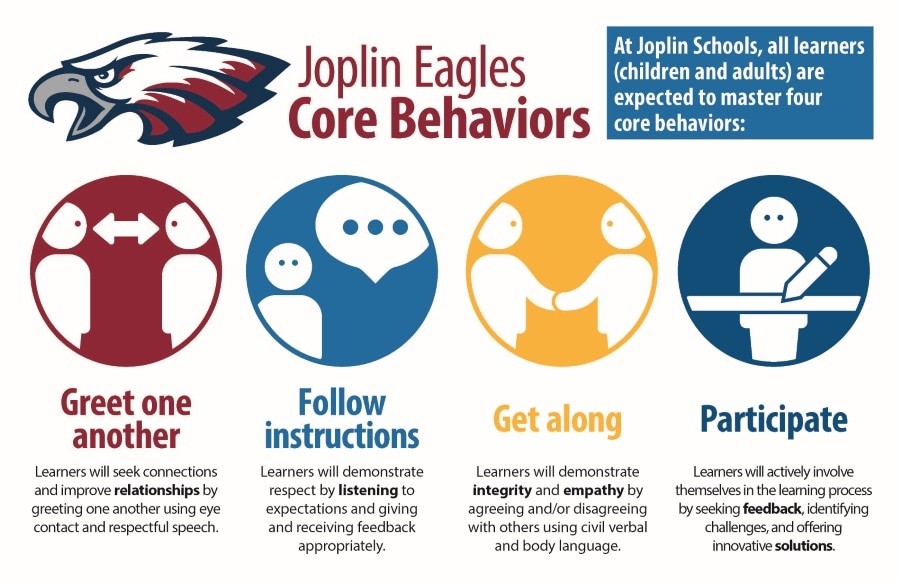At Joplin Schools, all learners (children and adults) are expected to master four core behaviors[.]

But before we get ahead of ourselves, shouldn't this be purpose-driven from the get-go? More so, shouldn't our students understand the reasons for our focus on these behaviors? When I constructed my list to dissect the Core Behaviors, I started a separate list for questions to which I didn't necessarily have answers. One of the questions was a why question: Why are we doing these things? Yes, when we achieve in these areas our classrooms run smoother, and teachers are relieved, but that means very little to children; they don't always see things from our angle. So, I needed to ask the same question in a child voice: why are these behaviors important to me?
After toying with some language to answer the inquiry, I simply came up with the idea that you (the learner) must protect your positive reputation. I hope that doesn't sound selfish or self-centered, but it's true. Once tarnished, a positive reputation might be difficult to reestablish. Behaviors from our past tend to come back to haunt us, either in the form of skeletons in our closets or as someone digging things up from our past from which we may well have been exonerated and forgiven.
A bad move can reduce the number of people willing to date you in high school. It can affect college acceptance. It can remove the availability of career choices. More immediate for the elementary student, however, poor behavior simply reduces joy.
I don't want there to be a popularity contest in my classroom, but I understand that there's nothing wrong with people liking you and enjoying your presence. Without compromising values and beliefs, why wouldn't you do the things that make other people want to be around you?
Is that where these Core Behaviors get you?
Conversely, a positive reputation addresses many aspects of your future life. As such, a positive reputation is a treasure to be guarded and protected. Therefore:








































